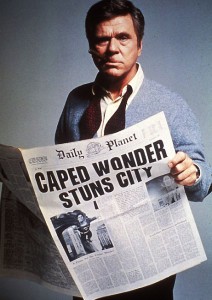September 18, 1919
My dearest friend,
Girls should be fearless.
That’s what my Aunt Julia always says to me when ever I begin to doubt myself, and when she and Miss Haversham announced they were starting a troop of Girl Scouts, I was the first to put down my name.
Girl Scouts! Just the name gives me shivers of excitement. The idea that girls could do the same things the boys do in their Scouting adventures thrilled me to no end. My own brothers— I have five, all of them older— have all been heartlessly smug and manly as they return from their camp! I had been pining to go with them, but they persisted in teasing me that there are certain things that girls are not able to do, sleeping on the ground being one of them.
Didn’t Grandmother sleep on the ground when she settled out west from Bradford, Pennsylvania, to take up homesteading in Kansas? Didn’t she ride her horse own all the way? Wasn’t she a crack markswoman, as well? She used to tell me about buffalo hunting trips, and brag that she brought down just as many beasts as the men.
Well, our Girl Scout troop has had the most remarkable adventures already! And better, we have had adventures such as none of my brothers ever had! Indeed, they were so jealous when I told them that they went about denying to the worlds that such a thing had ever happened. But I stand by my word, for a Girl Scout is always truthful and forthright.
It all began last summer, during the school holidays. Aunt Julia had arranged for us to go almost all the way to Springfield, Missouri, to have a camping holiday. While were were there, we were to sleep inside tents, and cook our food over a campfire, and tell tales and sing songs in the evenings. Aunt Julia even arranged for a minister to come to our camp to deliver Sunday Services— dreadful, I know, but I am informed that appearances must be maintained. (Frankly, I’d just as soon be a pagan— wear skins and run around in the woods like a wild Indian— it seems so much more interesting and romantic than the same old wearisome lessons about Ruth and Esther that we get all the time. A shame on me, but I know you, dear friend, would never breathe a word to anyone!)
We had been encamped for several days, getting gloriously filthy in the process and having grand old times. We even explored a magnificent cave in the hills north of the city! The weather had been fine, and there was constant bickering in the evenings as to whether we should leave the tent flaps open to catch the night time breezes or to keep them tied shut in order to exclude the mosquitos, which could be dreadful at times. That night the mosquitos won.
I came awake when Hattie poked me firmly in the ribs. “Jane!” she hissed. “There’s something in the camp!”
Hattie is prone to flights of imagination, as well as speaking in italics, but Alice, who is neither, said, “I hear it too!”
I held my breath and listened hard, and could just barely hear something moving about outside. Then there was a ghastly shriek, a wild, wailing growl like nothing I had ever heard before.
My heart nearly turned to ice in my chest, but I reminded myself that cowardice is for other, weaker souls, and carefully lifted up the bottom of the tent side, just an inch or so, to peek out.
There was something in the camp. I could see a long, sinuous shape prowling between myself and the still glowing embers of our campfire. It was an enormous cat, one hundred pounds at least, and had a tail as long as its own body, with a little white tuft on the tip.
“Try not to panic, girls,” I whispered to the others. “It’s a catamount.”
Hattie squeaked at the news. “I’m going to faint!” she wailed. “Suppose it came her to eat one of us?”
“It’ll eat the one that faints first!” I furiously racked my brains, remembering one of Grandmother’s favorite stories. “We have to frighten it away. We have to bang on something, shout, make a loud noise. Have we got any saucepans?”
“No,” Alice whispered. “I’ve got my whistle, though.”
“That’ll help. Here’s my canteen— it’s empty. We can bang on that. Has anybody else got anything?” We lit a lantern and rummaged around, finding several objects that we thought would suit the purpose.
I carefully untied the tent flaps and peeked out. The catamount was still prowling around, I thought. I whispered, “All together, now! One, two…”
We burst out of the tent whooping and shouting, waving our lantern and making as much noise as possible. I caught just a glimpse of angry green eyes and teeth bared in a snarl just before the animal bounded away.
This, of course, woke everybody else in the camp, and they came boiling out of their tents in their night dresses. We explained about the catamount, but they didn’t believe us. Not at first. Miss Haversham suspected us of playing a joke, but then Aunt Julia pointed out that some of our bundles of food had been torn into.
It wasn’t until the next morning that Mr. Davis, the man who owns the campground, showed us the large paw prints down at the muddy streambank. “It’s a good thing that creature didn’t visit you girls in the night,” he warned. “He’d have et you up!”
So that was my Scouting adventure, the first of many, I hope. We have such fine times planned for the future! But I must close this letter, now— the other girls and I are putting on a play about Anne Bonney, and they’ve given me the lead. I must dash to make it to rehearsal on time.
Yours most affectionately,
J. Hungerford.



